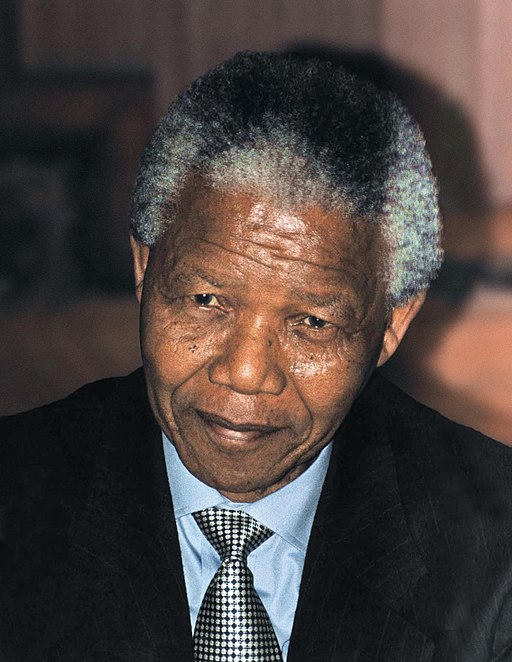In the annals of history, there are extraordinary individuals whose resilience, spirit, visionary leadership, and unwavering dedication left an indelible mark on their nations and the world.
Among them are inspiring African leaders who have not only shaped the course of their countries but have also become beacons of hope and inspiration for generations to come.
Become an insider. Subscribe to our newsletter for more top trending stories like this!
Preserving the Touch is a compelling exploration of the remarkable journeys and legacies of these influential African leaders. Their stories resonate not only because of their achievements but also because they embody the strength, resilience, and perseverance that resonates with the black community.
1. Nelson Mandela: South Africa
Nelson Mandela actively fought for South African freedom, embarking on a remarkable journey of resilience, leadership, and unwavering determination. He challenged the oppressive apartheid regime, dedicating his life to the pursuit of justice and equality.
Mandela emerged as a prominent anti-apartheid activist, mobilizing the masses through peaceful protests and civil disobedience. He fearlessly led the African National Congress (ANC), advocating for the rights of the marginalized and oppressed.
His activism ultimately led to his imprisonment for 27 years. Despite the harsh conditions and isolation, Mandela remained steadfast in his commitment to the cause, becoming a symbol of hope and resistance for South Africans and the world.
Following his release, Mandela’s active leadership continued as he negotiated with the apartheid government, working towards a peaceful transition to democracy. His efforts culminated in the historic 1994 elections, where he became South Africa’s first black president.
As president, Mandela actively pursued reconciliation, dismantling the divisive legacy of apartheid and fostering unity among the diverse population. He championed human rights, social justice, and economic development, striving to create a more inclusive and equitable society.
Throughout his journey, Mandela exemplified the power of forgiveness and the ability to transcend bitterness and resentment. His active engagement in politics and his commitment to non-violence inspired generations, leaving an indelible legacy as a global icon of freedom and peace.
Nelson Mandela’s active voice resonated far beyond South Africa, symbolizing the triumph of the human spirit over oppression and the transformative potential of collective action. His journey remains a testament to the enduring power of courage, perseverance, and the pursuit of a just society.
People Also Read: Black Brazil: A Story of African Resilience and Culture
2. Kwame Nkrumah: Ghana (1909-1972)
Kwame Nkrumah actively spearheaded Ghana’s journey to freedom, leaving an indelible mark as a visionary leader and advocate for African independence. He tirelessly fought against colonial rule, working towards the liberation and self-determination of the Ghanaian people.
Nkrumah emerged as a prominent figure in the struggle for independence, rallying the masses and organizing political movements. He founded the Convention People’s Party (CPP) and employed various strategies, including strikes, protests, and political mobilization, to challenge British colonial rule.
With his charismatic leadership and unwavering determination, Nkrumah successfully negotiated Ghana’s independence from British colonial control in 1957. He became Ghana’s first prime minister and later its first president, actively steering the nation towards progress, unity, and economic development.
As president, Nkrumah implemented a bold agenda aimed at building a prosperous and equitable Ghana. He initiated programs and policies to advance education, healthcare, and infrastructure, and worked to establish Ghana as a leader on the African continent.
Nkrumah also championed the concept of pan-Africanism, actively collaborating with other African nations to promote unity and solidarity across the continent. He played a key role in the formation of the Organization of African Unity (OAU), advocating for African independence, decolonization, and the eradication of racism and inequality.
However, Nkrumah’s active pursuit of a socialist agenda and consolidation of power drew criticism and opposition from various factions within Ghana. In 1966, a military coup led to his ousting from power, but his influence and legacy continued to resonate both in Ghana and across Africa.
Kwame Nkrumah’s active voice in the struggle for Ghana’s freedom remains an inspiration to generations, symbolizing the resilience, determination, and dedication needed to achieve independence and self-governance. His vision and leadership continue to shape the trajectory of Ghana and serve as a beacon for African nations striving for sovereignty and progress.
3. Jomo Kenyatta: Kenya
Jomo Kenyatta actively led Kenya’s journey to freedom, leaving an enduring legacy as a key figure in the country’s fight against colonial rule. He played a pivotal role in shaping Kenya’s path to independence and became the nation’s first president.
Kenyatta emerged as a prominent leader, mobilizing the Kenyan people and advocating for their rights and self-determination. He actively fought against British colonialism, organizing protests, boycotts, and political movements to challenge the oppressive regime.
With his resolute determination and strategic approach, Kenyatta actively pursued negotiations with the British authorities. He played a vital role in the establishment of the Kenya African Union (KAU), a political party focused on promoting Kenyan interests and pushing for independence.
Kenyatta’s efforts culminated in Kenya gaining independence from British colonial rule in 1963. He became the prime minister and later assumed the position of Kenya’s first president. As president, Kenyatta actively worked towards nation-building, fostering unity, and promoting economic development.
He implemented policies to address socio-economic disparities, expand access to education and healthcare, and promote agricultural and industrial growth. Kenyatta actively sought to strengthen Kenya’s position on the international stage, fostering diplomatic relations and promoting Pan-Africanism.
Become an insider. Subscribe to our newsletter for more top trending stories like this!
However, Kenyatta’s leadership also faced challenges and criticisms, particularly in relation to political freedoms and human rights. Nevertheless, his active voice in Kenya’s struggle for freedom and his efforts to build a strong and independent nation left a profound impact on the country’s history.
Jomo Kenyatta’s legacy as an active leader in Kenya’s fight for freedom remains an inspiration. His vision, determination, and commitment to the welfare of the Kenyan people shaped the nation’s trajectory and continue to influence its development today.
People Also Read: Meet Zimbabwe’s Two-Toed Tribe, the Vadoma
4. Julius Nyerere: Tanzania
Julius Nyerere actively led Tanzania to freedom, playing a vital role in the country’s fight against colonial rule and its subsequent path to independence. He emerged as a prominent leader and advocate for Tanzanian nationalism, leaving a lasting impact on the nation’s history.
Nyerere actively mobilized the Tanzanian people, organizing political movements and advocating for their rights and self-determination. He actively challenged British colonialism, promoting a sense of unity and collective identity among Tanzanians.
With his visionary leadership and persuasive voice, Nyerere actively pursued negotiations with the British authorities, aiming for a peaceful transition to independence. He played a pivotal role in the formation of the Tanganyika African National Union (TANU), a political party that worked towards the liberation of Tanzania.
Nyerere’s efforts bore fruit when Tanganyika gained independence from British colonial rule in 1961. He became the country’s first prime minister and later served as its first president. As president, Nyerere actively pursued policies aimed at nation-building, social justice, and economic development.
He implemented various programs, such as the Ujamaa policy, which focused on collective farming and rural development, aiming to uplift the lives of Tanzanians and reduce inequality. Nyerere actively promoted education and healthcare, recognizing their crucial role in building a strong and prosperous nation.
Internationally, Nyerere actively supported the principles of Pan-Africanism, advocating for African unity and cooperation. He played a key role in the formation of the Organization of African Unity (OAU) and actively participated in diplomatic efforts to resolve regional conflicts.
Nyerere’s leadership faced challenges and criticisms, particularly in relation to economic policies and political freedoms. However, his active voice in Tanzania’s struggle for freedom and his commitment to the well-being of the Tanzanian people continue to shape the country’s trajectory.
Julius Nyerere’s legacy as an active leader and visionary remains influential in Tanzania and beyond. His principles of self-reliance, social justice, and Pan-African solidarity continue to inspire generations, reflecting his enduring impact on Tanzania’s history and the broader African continent.
People Also Read: 11 Famous African Kingdoms and Their Rulers
5. Thomas Sankara: Burkino Faso
Thomas Sankara actively led Burkina Faso’s journey to freedom, becoming a prominent figure in the country’s fight against oppression and colonial influences. He emerged as a passionate and charismatic leader, leaving an indelible mark on Burkina Faso’s history.
Sankara actively challenged the existing power structures and actively fought against corruption and social injustices. He advocated for the rights and empowerment of the Burkinabe people, striving to create a more equitable and self-sufficient society.
With his strong leadership and commitment to grassroots mobilization, Sankara actively promoted revolutionary ideals and implemented progressive policies. He aimed to reduce dependence on foreign aid and transform Burkina Faso into a self-reliant and economically independent nation.
Sankara actively pursued policies focused on education, healthcare, and agrarian reform. He encouraged mass mobilization, implementing campaigns for literacy and vaccination, and emphasizing the importance of women’s rights and gender equality.
Through active participation and engagement with the Burkinabe population, Sankara sought to build a sense of national unity and cultural identity. He actively worked towards eradicating tribal divisions and promoting a collective spirit of progress and solidarity.
Sankara’s leadership and activism resonated beyond Burkina Faso, as he actively advocated for Pan-Africanism and stood up against neocolonial influences. He actively criticized Western powers and actively sought to promote African autonomy and self-determination.
Unfortunately, Sankara’s journey was cut short by a military coup in 1987, leading to his untimely death. However, his active voice and transformative vision continue to inspire and influence the people of Burkina Faso and the broader African continent.
Thomas Sankara’s legacy as an active leader and visionary lives on, symbolizing the relentless pursuit of freedom, justice, and social progress. His unwavering commitment to the liberation of Burkina Faso and his dedication to empowering the Burkinabe people have left a lasting impact on the nation’s history and the collective memory of Africa.
Spotcovery offers unique and fresh daily content on Black culture, lifestyle, and experiences. We talk about everything black, black people, black-owned and black-owned businesses. We also deliver authentic and relevant content that will inform, inspire and empower you! The future of black media is a critical piece of the black experience of today! Our primary audience includes African American, African, Afro-Caribbean and people of African heritage. Black culture is for the culture!
Become an insider. Subscribe to our newsletter for more top trending stories like this!





